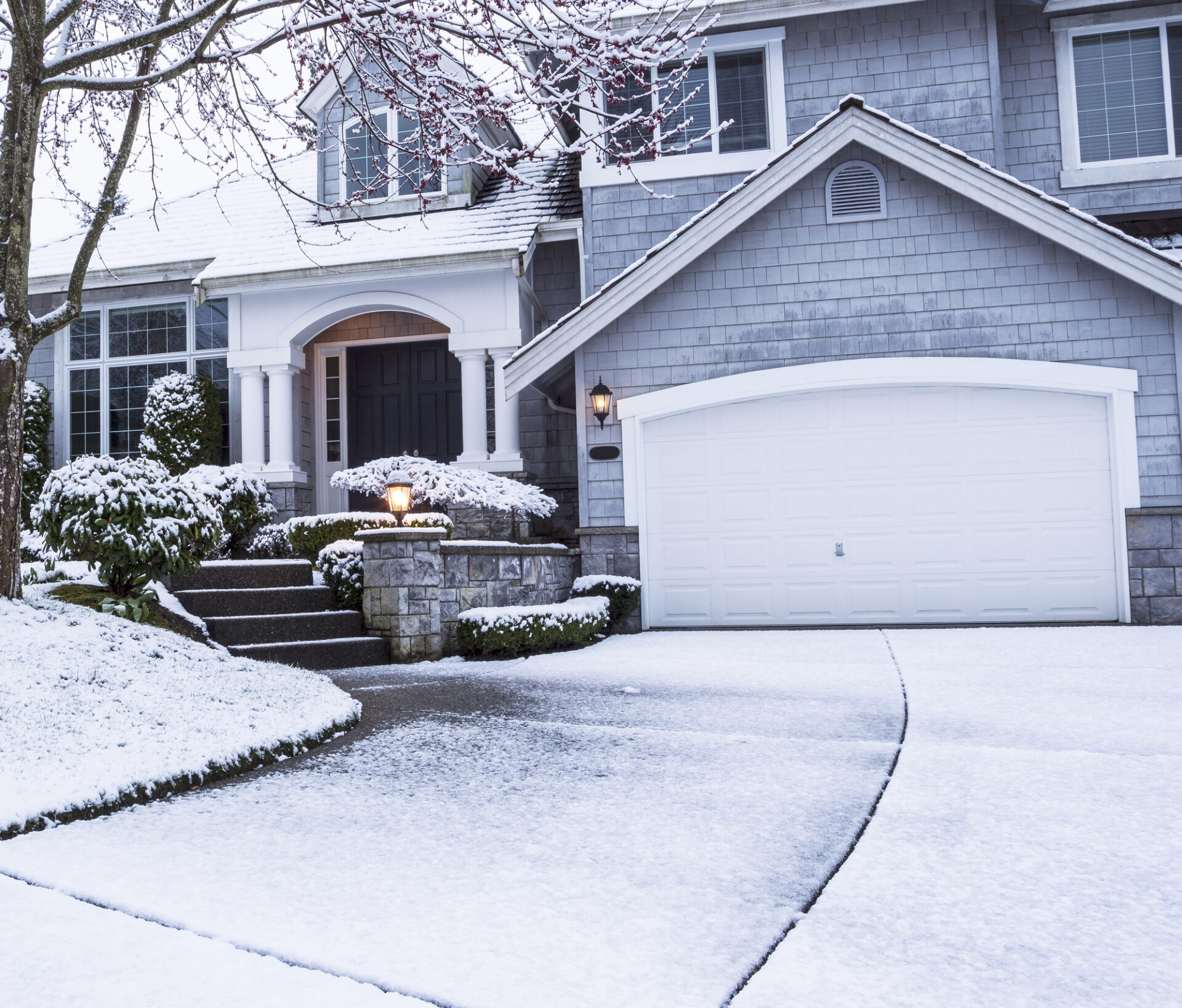The winter weather is no friend to concrete driveways, here in northern Utah. Concrete may seem like a dense material, but it is actually quite porous. So, when snow and ice melt on your driveway, water seeps down inside the concrete surface.

And then, when the temperature dips, the water freezes, causing the concrete to expand. The stress this process causes will eventually degrade the integrity of the concrete slab.
Without the proper care, your driveway can crack and flake as a result of Utah’s repeated freezing and thawing cycles. To prevent driveway damage this winter – and avoid concrete repair in the spring – follow our expert tips.
Keep Concrete Driveways Cleared of Snow
When northern Utah gets hit with a snowstorm, you might have to break out a shovel to clear a path for your car. That’s not enough, though, to prevent damage. Any snow left on the concrete driveway surface will eventually melt and soak in.
Take the extra time to clear away the snow from the entire driveway every time it snows, and you’ll be less likely to see damage from the winter weather. Be sure to always use a plastic shovel, as a metal snow shovel can scratch and ding your driveway, especially when the temperatures drop below 30 degrees.
Avoid Using Deicing Salts on Concrete Driveways
Deicing salts are used on Utah streets and parking lots every winter. That does not mean, however, that you should follow suit and use this product on your driveway.
Deicers do serve a purpose, as they act to turn ice into slush that is easier to remove. But the salty slush water produced by a deicer can actually cause more harm to the concrete.
Quickly melting the ice with deicing salts gives water more of an opportunity to infiltrate the concrete. Plus, since salt attracts water, using a deicer can cause your driveway to become even more saturated than it would otherwise be.
If deicing salts are so bad for concrete driveways, what can you use instead? Spreading sand or fine gravel on the surface won’t melt ice and snow, but it can help provide traction and stop water from entering the concrete.
You may also want to consider protecting your driveway with a salt-resistant sealer. Sealers can prevent damage by minimizing the amount of water that can be absorbed when snow and ice melt.
Properly caring for your driveway this winter can help you fend off freeze-and-thaw cycle damage, but maintenance is no guarantee that you won’t see a crack or two in the spring. If you already have cracks, another winter weather cycle will make the damage worse.
Don’t wait until winter is in full swing. Call Lift Right Concrete today to prevent further problems.
The slab repair experts at Lift Right Concrete offer complimentary winter inspections and repair estimates for concrete driveways throughout northern Utah. Contact our West Jordan or Grantsville office to schedule an appointment today.